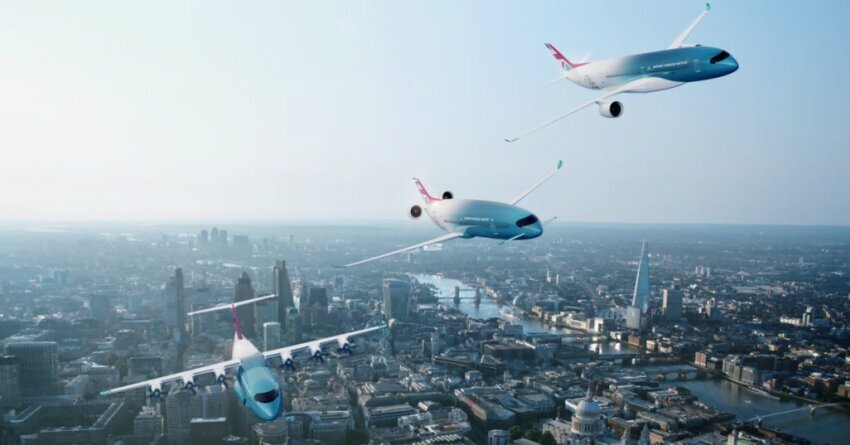 (Credit: ATI)
(Credit: ATI)The UK Government has pledged $120 million to develop innovative technologies that could pave the way for electric flying taxis and hydrogen-powered aircraft. The investment, made through the Aerospace Technology Institute (ATI) Programme, will fund projects by companies such as Vertical Aerospace and Rolls-Royce. Bristol-based Vertical Aerospace aims to create lightweight, high-end batteries, while Rolls-Royce will work on the building blocks for a liquid hydrogen combusting jet engine that would make carbon-free flight possible.
"At Vertical, we are pioneering the most advanced electric aircraft in the world, right here in the UK. We are absolutely delighted to co-invest with the government in developing the lightweight, high-performance, and safe batteries we need to make zero-carbon flight a reality. In the race to Net Zero, the ATI Programme is delivering a huge opportunity for the government and industry to come together to create world-leading, British technologies and build British expertise," stated Stephen Fitzpatrick, CEO and Founder of Vertical Aerospace.
From Belfast to Derby, these projects will create jobs across the supply chain, and attract private investment worth hundreds of millions of pounds, helping to boost the UK economy while reducing global aviation emissions. The ATI Programme has already achieved practical successes, such as the maiden flight of ZeroAvia’s hydrogen fuel cell-powered 19-seater aircraft in January. The Department for Transport is also calling for views from the sector on how to achieve the target of zero emissions from airport operations in England by 2040, as part of the government’s Jet Zero Strategy.
The official announcement of the investment will take place during the seventh gathering of the Jet Zero Council at Boeing's London Office. Boeing has a workforce of more than 3,000 highly skilled employees across 30 important locations in the UK. They invest approximately $2.4 billion every year in high-value aerospace export parts in the supply chain.
The Council was established as a collaboration between the government and industry to accelerate the achievement of zero-emission air travel by 2050 through the allocation of resources and emphasis on cutting-edge technologies and sustainable aviation fuels, in accordance with the Jet Zero Strategy. By utilizing the United Kingdom's exceptional aerospace and aviation industries, which had a workforce of 230,000 people and a Gross Value Added (GVA) contribution of approximately $26 billion to the UK economy prior to the pandemic, the Council is able to effectively address emissions while promoting expansion and environmentally friendly innovation.
The meeting follows notable advancements in the government's SAF initiative. In the previous year's conclusion, 5 enterprises were granted a portion of the Department for Transport's $198 million Advanced Fuels Fund. Projects spanning from Teesside to Ellesmere Port received funding to establish facilities that will transform domestic and commercial refuse into jet fuel. Additionally, the government will provide funding to Virgin Atlantic to conduct the world's first net zero transatlantic flight using 100% SAF. The flight will depart from the UK and travel to New York this year.